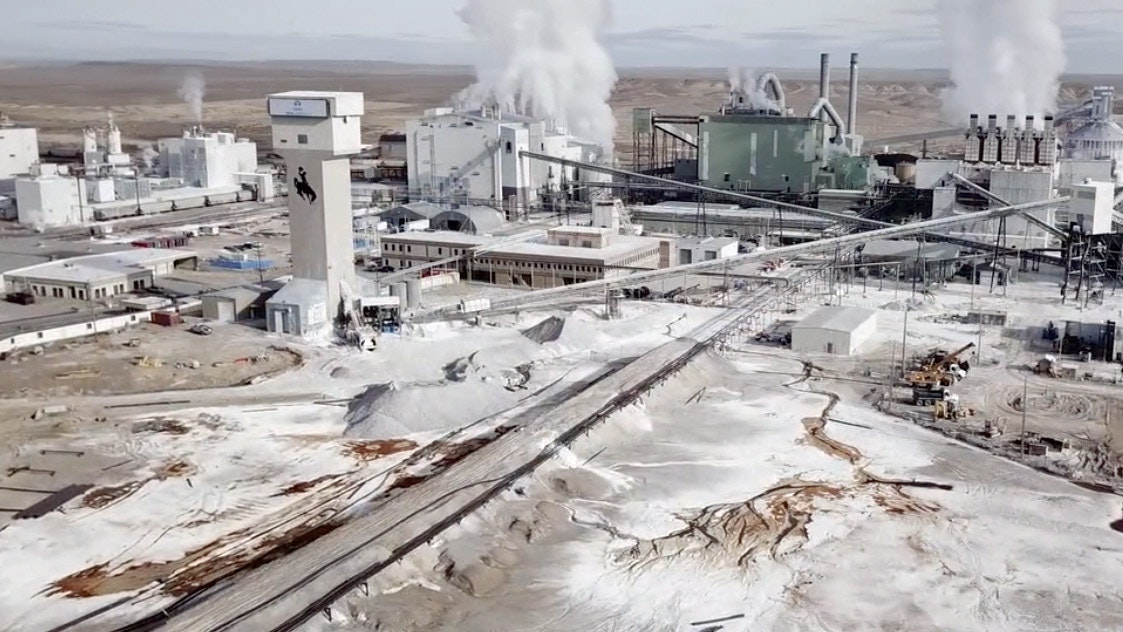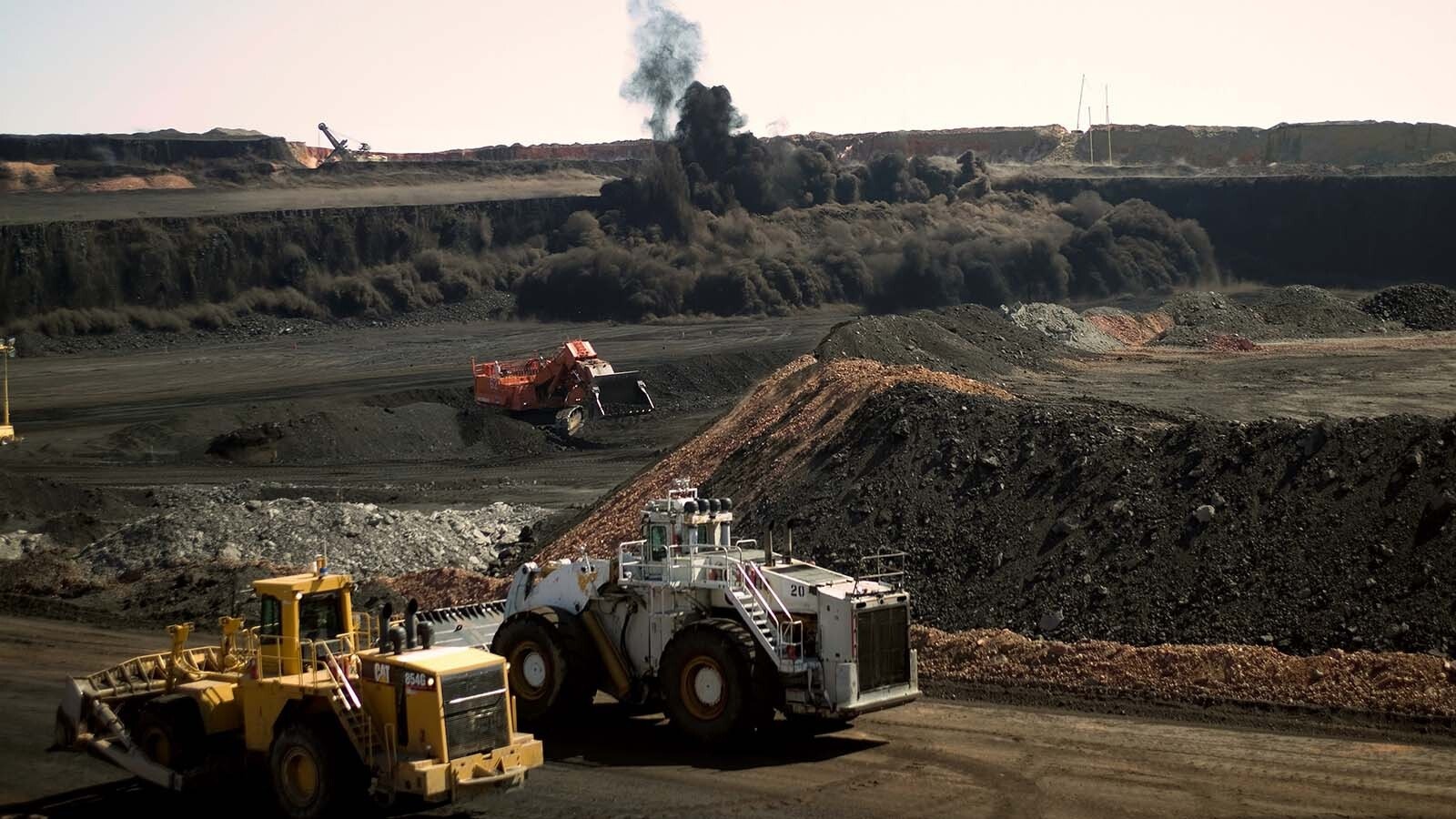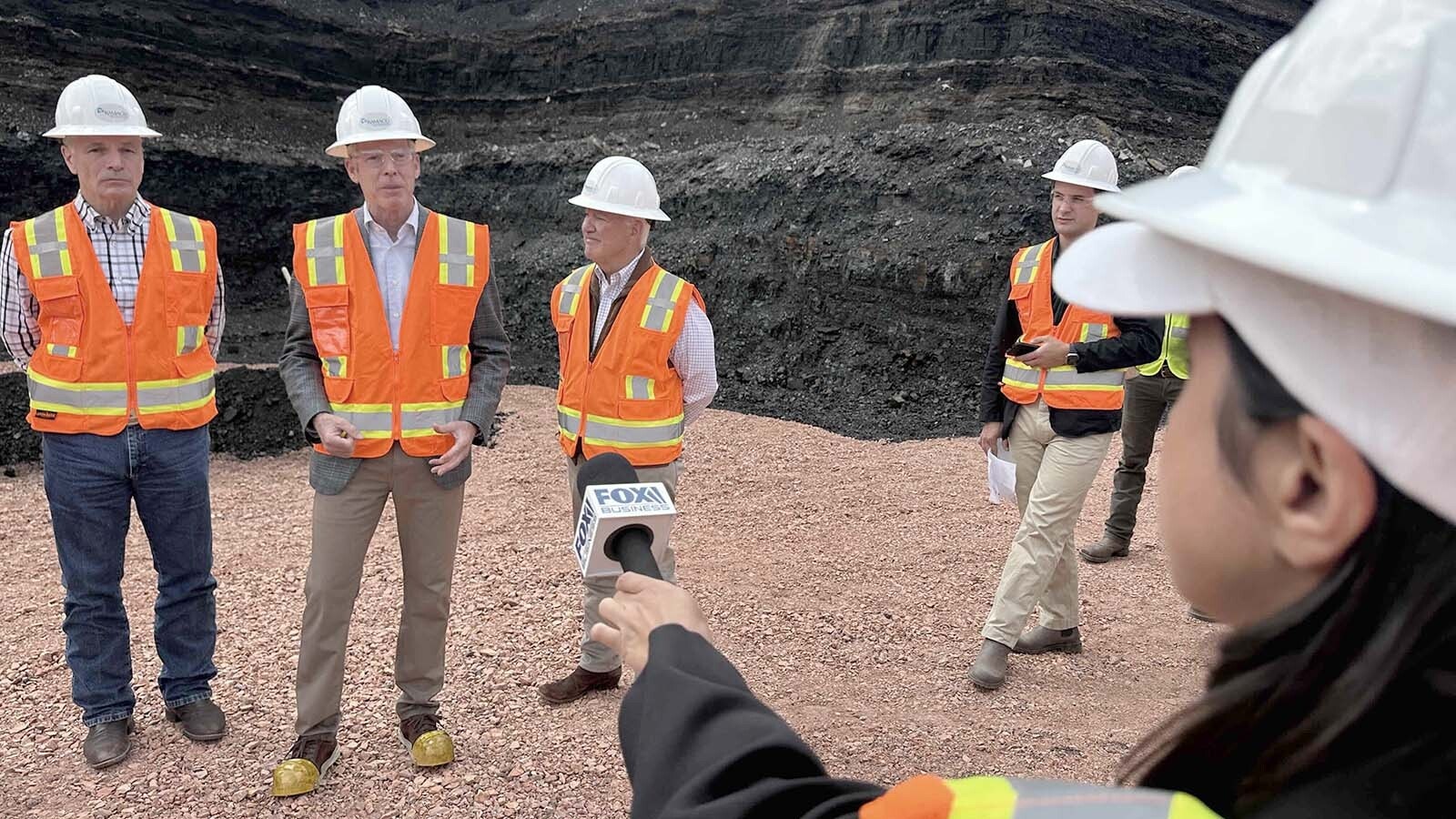Hidden from sight beneath Sweetwater County’s rolling hills, thousands of miners dig for Wyoming’s top international export — trona.
“We have four different companies mining underground beds of trona between Green River and Rock Springs,” said Travis Deti, the Wyoming Mining Association executive director. “The mines are actually quite the sight to see. It’s like a whole little city down there with machine shops, bathrooms and roads.”
A sodium carbonate compound, trona is processed into soda ash, which is used in baking soda, glass making and cleaning products such as laundry detergent.
Wyoming is home to the largest trona deposit in the U.S., and the Sweetwater mines produce more than 17 million tons of trona annually, Deti said.
“We export about 50 percent of that right now, and I do think you’ll see the demand go up in coming years,” he added. “It’s really a bright spot for Wyoming mining right now.”
Unlike coal, trona doesn’t need to trudge through red tape before being exported.
“Coal is an energy material and has emissions, but trona doesn’t have those issues because you’re exporting it to create products, not to burn for energy,” Deti said. “There’s not a lot of politics surrounding trona and soda ash.”
Natural vs. synthetic
Soda ash produced from trona rock competes against synthetically produced soda ash to meet global demands, said David Caplan, communications director for Genesis Alkali.
“Synthetic soda ash is created with a chemical process and fills about 75 percent of the worldwide supply,” Caplan said. “Natural soda ash makes up the remaining 25 percent. But it has a lot of environmental advantages over the synthetic product.”
The process to produce soda ash from natural trona rocks requires less energy input, thus creating less greenhouse gasses, he explained.
In the U.S., soda ash is primarily used to create glass products and baking soda. In years past, North American laundry detergent companies used soda ash as a key component of dry detergents, but Caplan said consumers shifted toward liquid detergents and pods, which are created with significantly less soda ash.
“In the U.S., we have a mature market — the average household uses 17 pounds of soda ash each year,” he said. “In developing countries trying to industrialize, you’re seeing soda ash use of less than 5 pounds per household per year. So, there’s a lot of room left for growth.”
Genesis Alkali’s products are shipped to Southeast Asia, Central America and South America, he said.
“With the growing popularity of Mexican beer over the last decade, we’re seeing a lot of our international products — primarily the glass bottles — come back into the U.S.,” Caplan said.
With a potential for a strong future in growing markets, the industry is continually evolving, developing new technology and reducing inefficiencies.
“Through technology and engineering, we’re able to improve our yields,” Caplan explained. “But one challenge we spend a lot of time researching is trying to ensure we have ample water. We use a lot of water, and we have to keep an eye on that.”
Supporting Sweetwater
Employing more than 2,000 workers, Wyoming’s trona industry plays an integral role in both the Green River and Rock Springs economies.
“Trona is the life blood of this community,” Green River Mayor Pete Rust said. “It’s the reason Green River has the second-highest median income in the state.”
More than just jobs, the industry injects spendable income into the local economy, allowing other industries to thrive, Rust said.
But as the state works to diversify its energy portfolio, he said new hurdles have popped up.
“Recently, there’s been some interesting kinds of challenges with new interest in solar farms,” Rust said. “There’s some potential conflict of interests with these new developments that take up quite a bit of space.”
Deti said the energy and trona industries have to work together to ensure surface development doesn’t “sterilize” access to the minerals below.
“I think it’s all about striking a balance,” he said.
In Rock Springs, Mayor Tim Kaumo said trona is equally critical to the city’s survival.
“We’ve already got a black eye from the decline in coal,” Kaumo said. “If we were to ever lose trona mining, it would be extremely detrimental.”
That situation seems unlikely, however, and instead, he said the city is seeking to capitalize on the potential growth of soda ash demand.
“We’re trying to capture more of the manufacturing side so we can entice businesses to come to Sweetwater County, take advantage of the in-place infrastructure and produce products generated by the trona patch,” Kaumo said.





